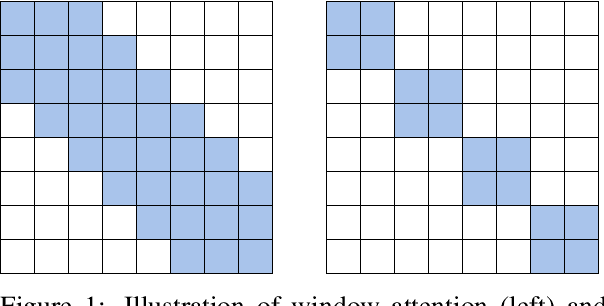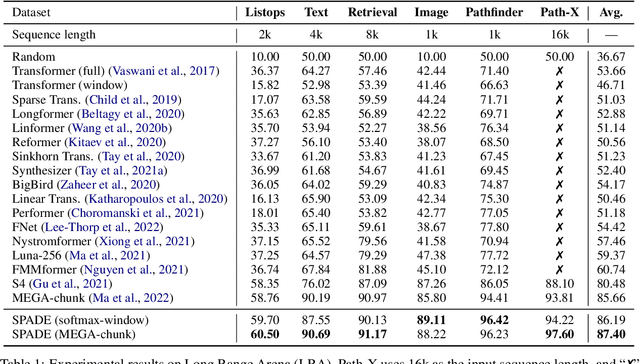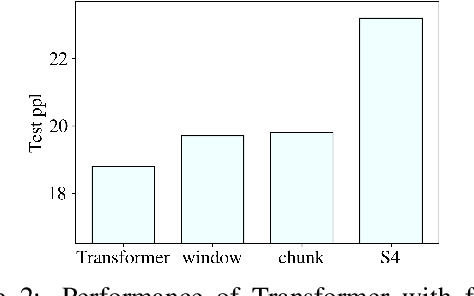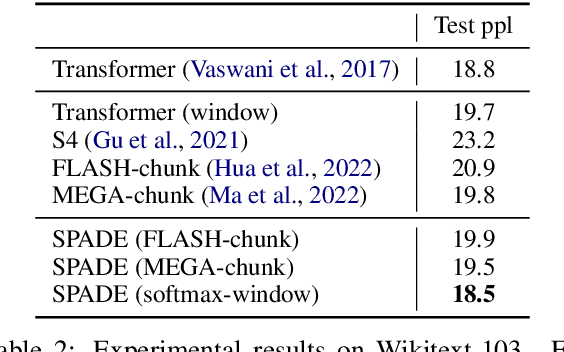Efficient Long Sequence Modeling via State Space Augmented Transformer
Paper and Code
Dec 15, 2022



Transformer models have achieved superior performance in various natural language processing tasks. However, the quadratic computational cost of the attention mechanism limits its practicality for long sequences. There are existing attention variants that improve the computational efficiency, but they have limited ability to effectively compute global information. In parallel to Transformer models, state space models (SSMs) are tailored for long sequences, but they are not flexible enough to capture complicated local information. We propose SPADE, short for $\underline{\textbf{S}}$tate s$\underline{\textbf{P}}$ace $\underline{\textbf{A}}$ugmente$\underline{\textbf{D}}$ Transform$\underline{\textbf{E}}$r. Specifically, we augment a SSM into the bottom layer of SPADE, and we employ efficient local attention methods for the other layers. The SSM augments global information, which complements the lack of long-range dependency issue in local attention methods. Experimental results on the Long Range Arena benchmark and language modeling tasks demonstrate the effectiveness of the proposed method. To further demonstrate the scalability of SPADE, we pre-train large encoder-decoder models and present fine-tuning results on natural language understanding and natural language generation tasks.
 Add to Chrome
Add to Chrome Add to Firefox
Add to Firefox Add to Edge
Add to Edge